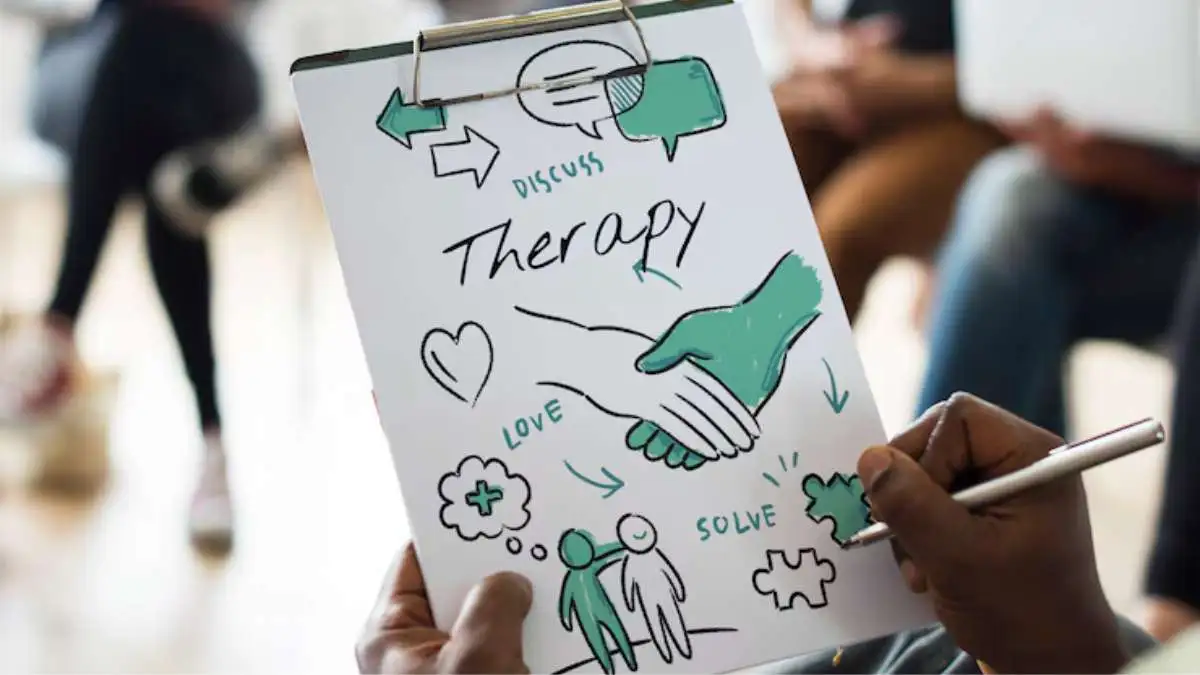HEALTH AND FITNESS
Natural Remedies vs. Traditional Therapies: What Works Best for Addiction and Mental Health?

Addiction and mental health issues are two of the most pressing challenges in today’s society. With millions of people worldwide struggling with substance abuse, depression, anxiety, and other mental health conditions, finding the right treatment approach is crucial. The debate between natural remedies and traditional therapies has gained momentum as people seek effective ways to manage their mental health and overcome addiction.
This article explores the effectiveness of natural remedies and traditional therapies for addiction and mental health. We’ll discuss the strengths and limitations of each approach, helping you make an informed decision on what works best for your situation.
Table of Contents
Understanding Traditional Therapies
Traditional therapies for addiction and mental health have long been the foundation of treatment. These therapies typically involve a combination of medical treatments, psychotherapy, and counseling. Some of the most common forms of traditional therapy include:
- Medication-Assisted Treatment (MAT): This approach involves the use of prescribed medications to manage withdrawal symptoms, reduce cravings, and prevent relapse. Medications such as methadone, buprenorphine, and naltrexone are often used for opioid addiction, while other medications like antidepressants and antianxiety drugs are prescribed for mental health conditions.
- Cognitive Behavioral Therapy (CBT): CBT is one of the most widely used forms of psychotherapy for both addiction and mental health. CBT therapy helps individuals identify and change negative thought patterns and behaviors that contribute to their struggles. CBT is effective in treating conditions like anxiety, depression, and substance use disorders.
- Inpatient and Outpatient Rehab Programs: Inpatient rehab programs provide intensive, structured treatment in a controlled environment, while outpatient programs offer flexibility for those who can maintain their daily routines. These programs often combine detoxification, therapy, and aftercare support to help individuals recover from addiction.
- 12-Step Programs: Groups like Narcotics Anonymous (NA) follow a structured, spiritual-based approach to recovery. These programs focus on admitting powerlessness over addiction, seeking help from a higher power, and maintaining lifelong sobriety.
While traditional therapies have a proven track record of success, they aren’t without limitations. Many people may experience side effects from medications, find therapy costly or time-consuming, or feel disconnected from the structured approach of rehab programs. This has led some to explore natural remedies as an alternative or complementary approach.
Exploring Natural Remedies
Natural remedies focus on holistic and alternative approaches to healing, addressing both the mind and body without relying on pharmaceutical medications. These remedies often include herbal treatments, dietary changes, exercise, and mindfulness practices. Some of the most popular natural remedies for addiction and mental health include:
- Herbal Supplements: Certain herbs, like St. John’s Wort, valerian root, and ashwagandha, are known for their calming effects and ability to alleviate symptoms of anxiety and depression. Other herbs, such as kudzu and milk thistle, are used to reduce cravings and support liver health in people recovering from addiction.
- Mindfulness and Meditation: Practices like meditation, yoga, and deep breathing exercises can help individuals manage stress, reduce anxiety, and improve their overall mental well-being. These practices promote mindfulness, allowing individuals to become more aware of their thoughts and emotions, which can be particularly helpful for those in recovery from addiction.

- Exercise and Physical Activity: Regular exercise has been shown to have a positive impact on mental health by releasing endorphins, reducing stress, and improving mood. Exercise can also serve as a healthy alternative to addictive behaviors, providing a sense of accomplishment and structure to daily routines.
- Nutritional Therapy: Proper nutrition plays a vital role in mental health and addiction recovery. A diet rich in whole foods, including fruits, vegetables, lean proteins, and healthy fats, can support brain function, stabilize mood, and help the body heal from the damage caused by substance abuse.
- Acupuncture and Massage Therapy: These alternative treatments can help reduce cravings, relieve stress, and promote relaxation. Acupuncture, in particular, has been used to support addiction recovery by targeting specific pressure points to balance the body’s energy.
Natural remedies offer a holistic approach to recovery and mental well-being, but they also have their limitations. While some individuals may find relief through these methods, others may require more intensive interventions to address the root causes of their addiction or mental health issues.
Natural Remedies vs. Traditional Therapies: Which Works Best?
When it comes to choosing between natural remedies and traditional therapies for addiction and mental health, there is no one-size-fits-all answer. The effectiveness of each approach depends on several factors, including the severity of the condition, individual preferences, and access to treatment options.
1. Effectiveness:
- Traditional therapies have a long history of evidence-based success, particularly for severe cases of addiction and mental health disorders. Medication-assisted treatment, for example, has been proven to reduce opioid overdose deaths and increase recovery rates.
- Natural remedies, on the other hand, may be more effective for individuals with mild to moderate symptoms or as a complement to traditional treatments. Practices like mindfulness and exercise can enhance the effectiveness of therapy and medications by promoting overall well-being.
2. Accessibility:
- Traditional therapies, especially inpatient rehab programs and psychotherapy, can be expensive and may require a significant time commitment. In contrast, natural remedies like exercise, meditation, and herbal supplements are often more accessible and affordable.
- However, it’s essential to recognize that some natural remedies may not be suitable for everyone. For example, herbal supplements can interact with prescribed medications, and not all individuals have access to alternative therapies like acupuncture or nutritional counseling.
3. Personal Preference:
- Some individuals prefer natural remedies because they align with their values or lifestyle choices. For example, people who prioritize holistic living may be more inclined to choose yoga and meditation over medication. Others may prefer traditional therapies because they offer structured, evidence-based approaches to recovery.
4. Long-Term Success:
- Traditional therapies tend to offer more comprehensive long-term support, particularly for those with severe addiction or co-occurring mental health disorders. Rehab programs and 12-step groups provide ongoing care and community, which are critical for maintaining sobriety and mental well-being.
- Natural remedies can play a valuable role in long-term success by promoting self-care, reducing stress, and providing healthy alternatives to addictive behaviors. However, they may not be sufficient as a standalone treatment for more complex cases.
Combining Both Approaches
For many people, the most effective approach to treating addiction and mental health issues involves combining natural remedies with traditional therapies. This integrative approach allows individuals to benefit from the strengths of both methods, tailoring their treatment plan to meet their unique needs.
For example, someone recovering from addiction might participate in a traditional 12-step program while also incorporating mindfulness meditation and exercise into their daily routine. This combination can help address the physical, emotional, and spiritual aspects of recovery.
Incorporating natural remedies into a traditional treatment plan can enhance overall well-being, reduce reliance on medications, and provide additional tools for coping with stress and cravings. It also allows individuals to take an active role in their recovery by exploring holistic practices that support their long-term health.
Conclusion
The debate between natural remedies and traditional therapies for addiction and mental health will likely continue as people seek personalized approaches to recovery. While traditional therapies have a solid track record of success, natural remedies offer valuable complementary options that can enhance overall well-being.
Ultimately, the best approach depends on the individual’s needs, preferences, and circumstances. Whether you choose natural remedies, traditional therapies, or a combination of both, the key is to seek help, stay committed to your recovery, and prioritize your mental health
-

 GENERAL6 months ago
GENERAL6 months agoChristofle – For Those Who Dream of Family Heirloom Silver
-

 SPORTS8 months ago
SPORTS8 months agoDiscover the World of Football with Streameast: Watch Your Favorite Leagues and Tournaments
-

 GENERAL4 months ago
GENERAL4 months agoUncovering the World of кинокрадко: The Dark Side of Film Piracy
-

 GENERAL2 months ago
GENERAL2 months agoATFBooru: Anime, Gaming, and Subculture Imageboard





























